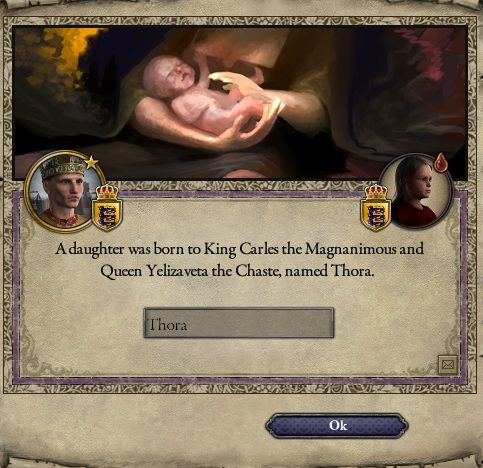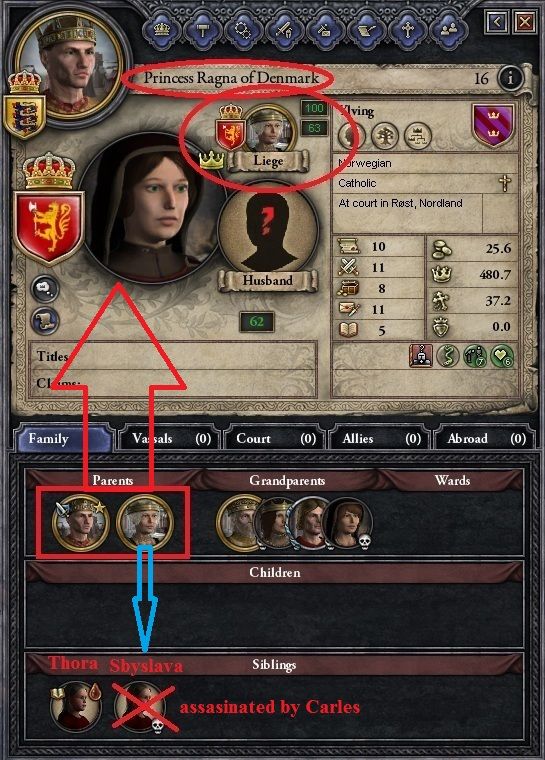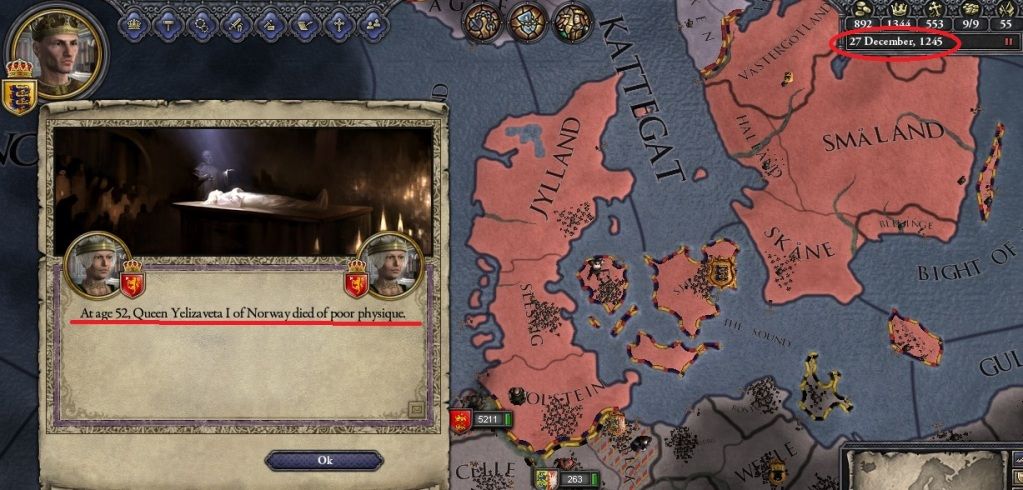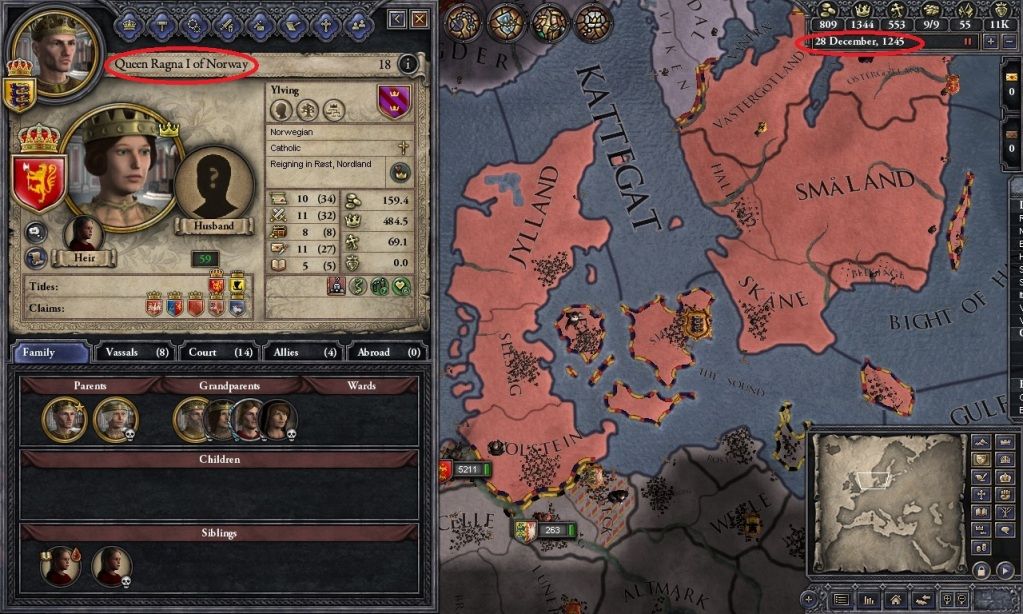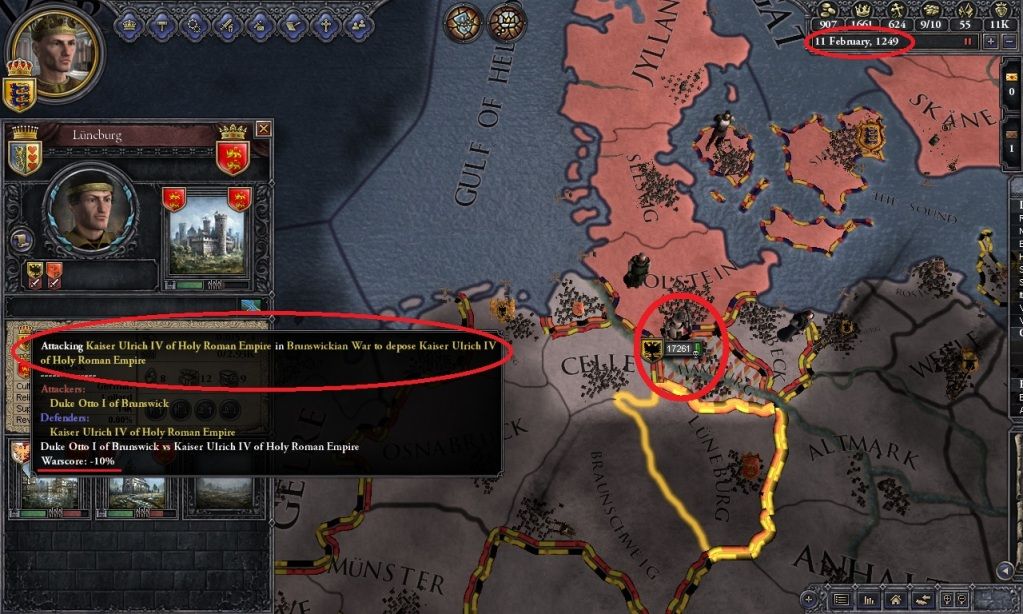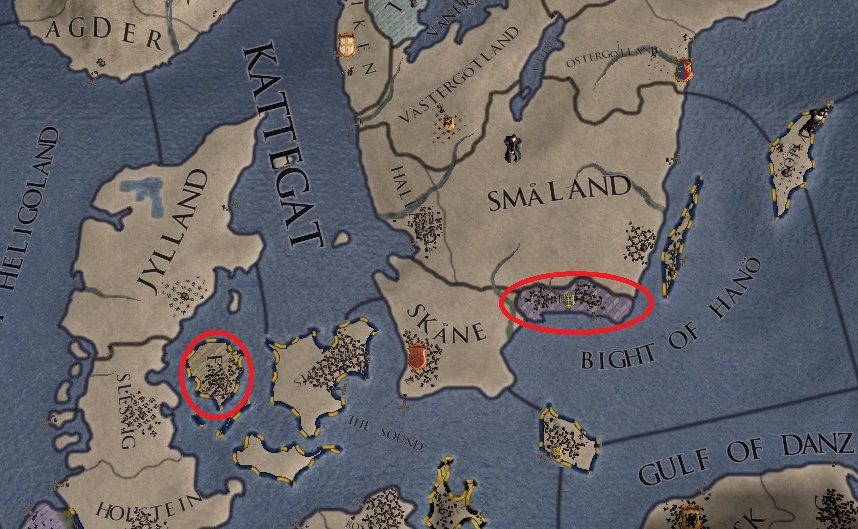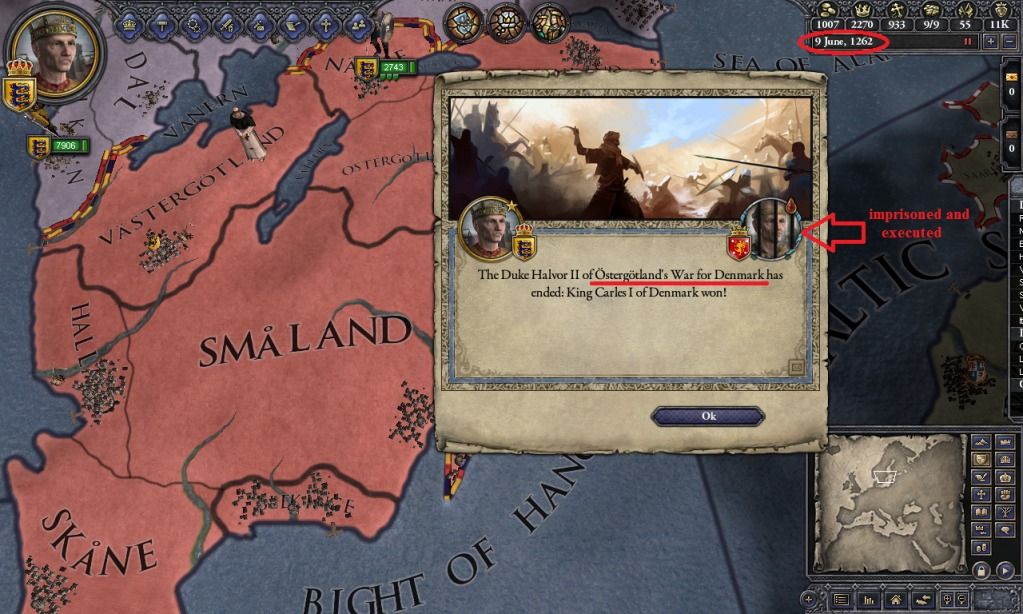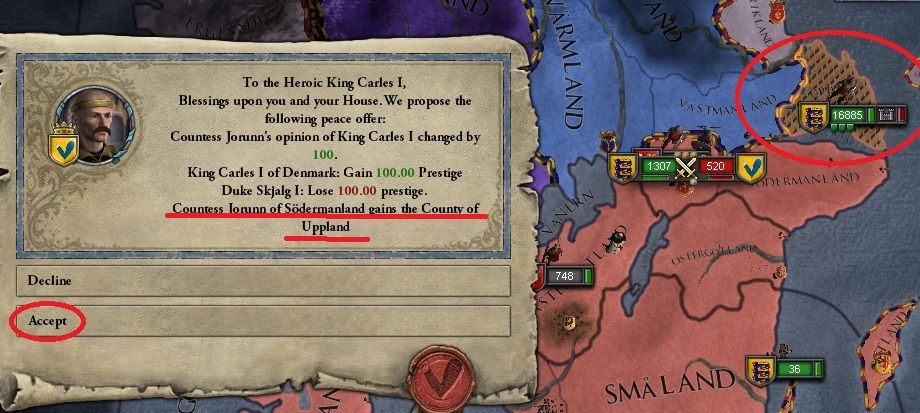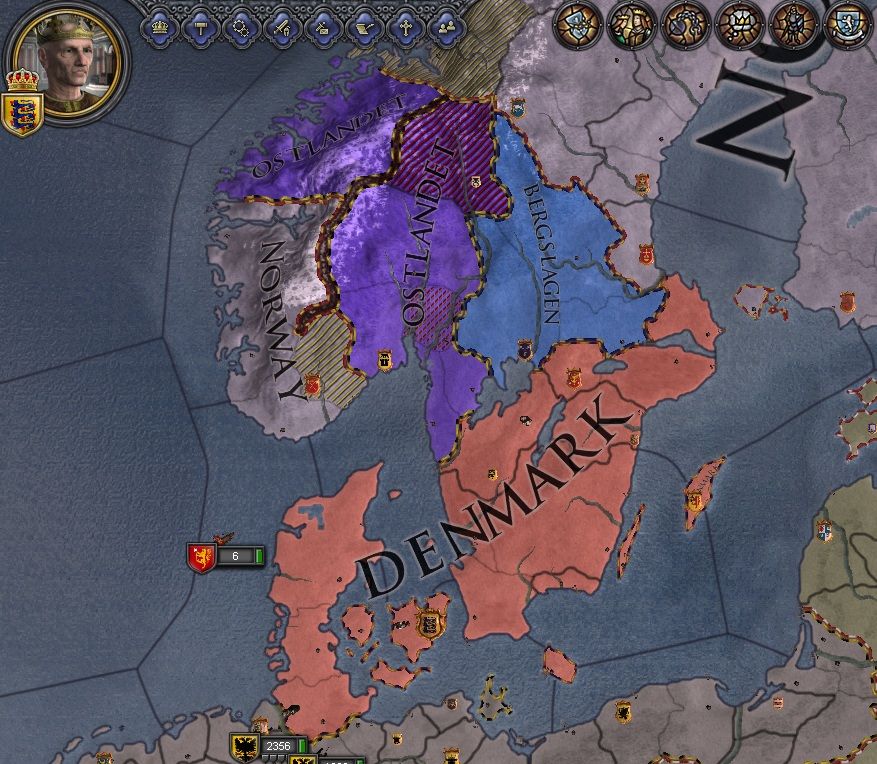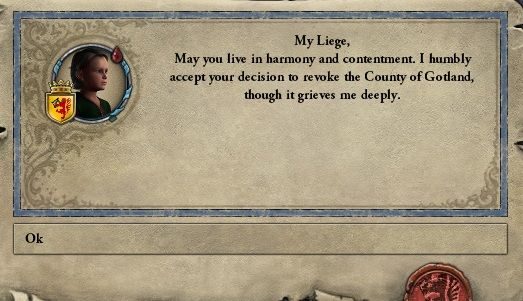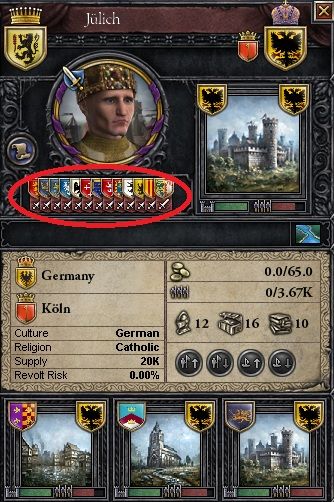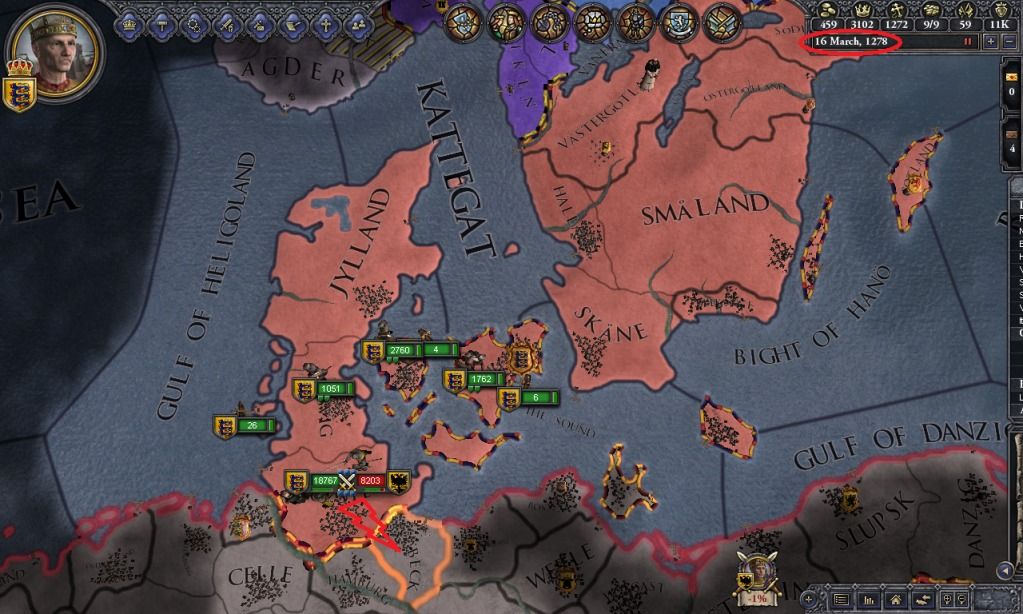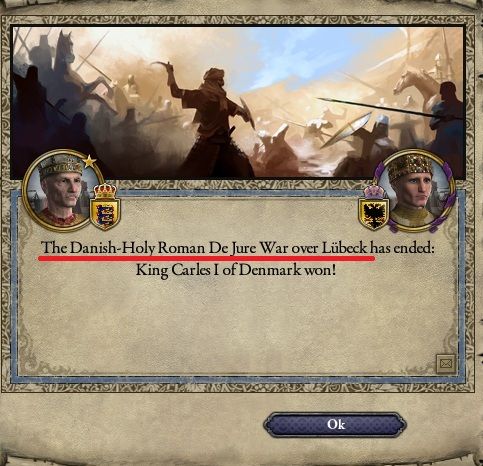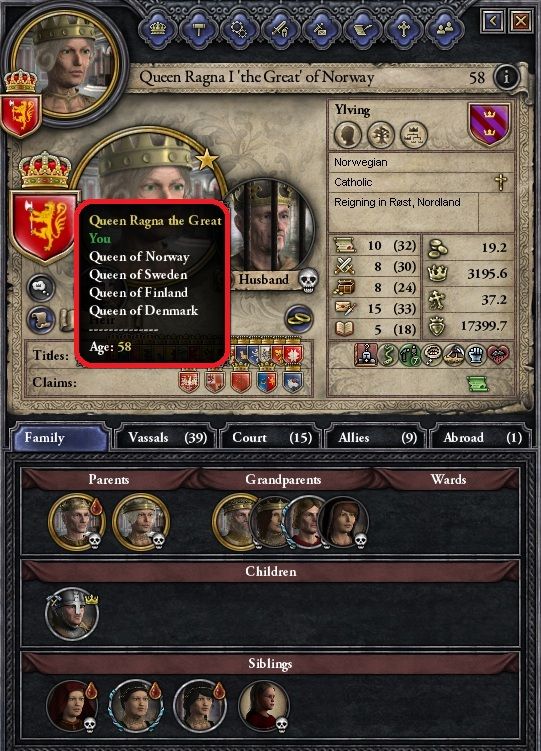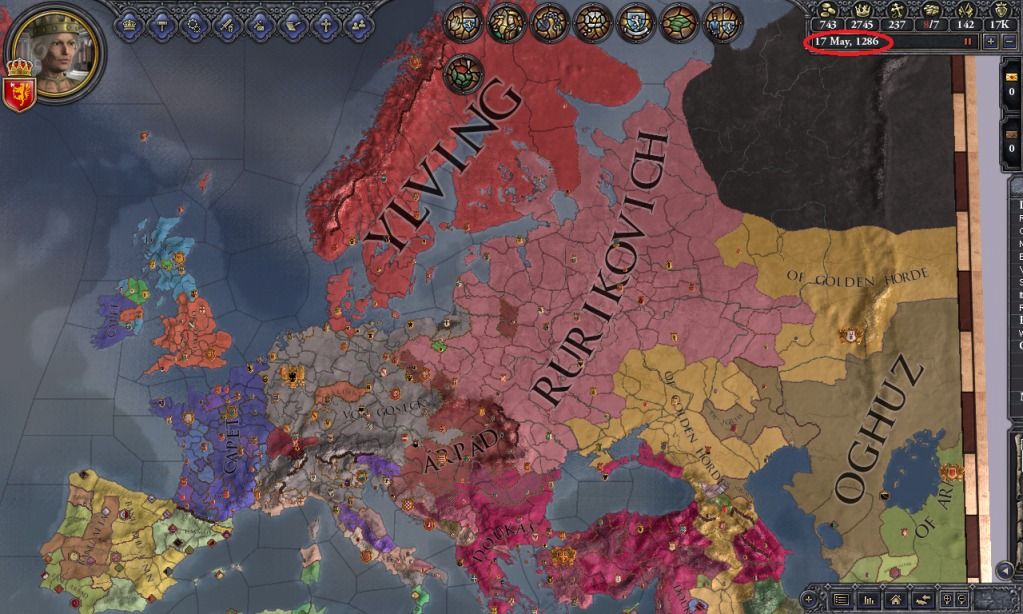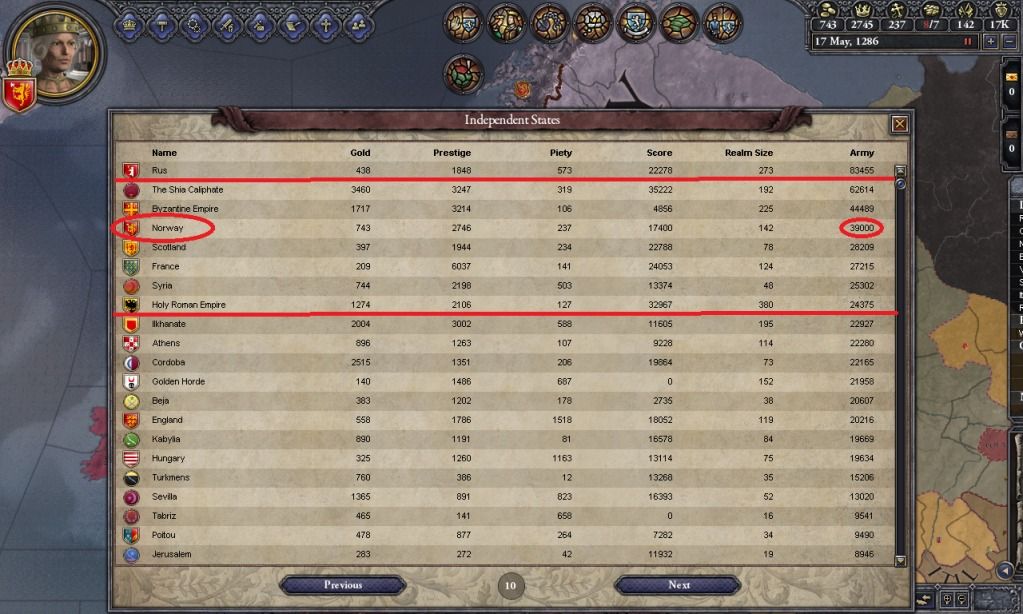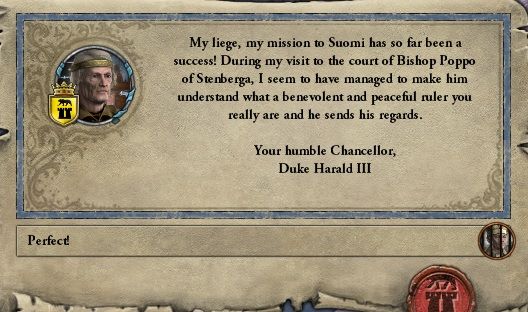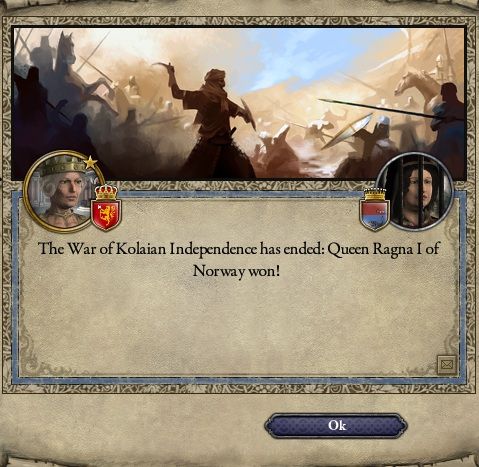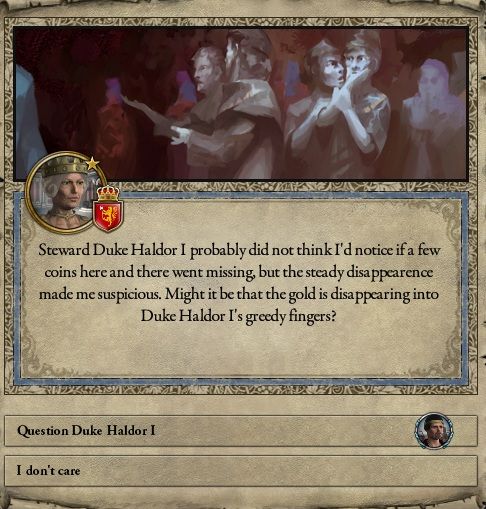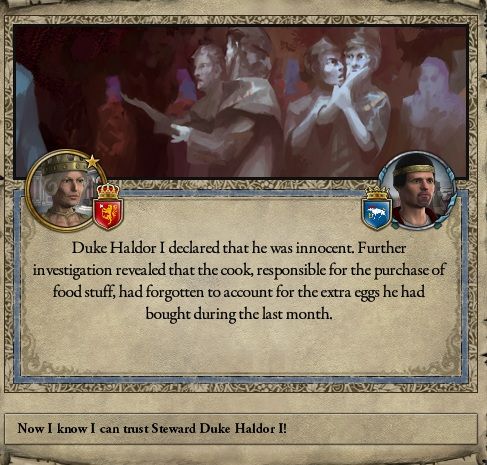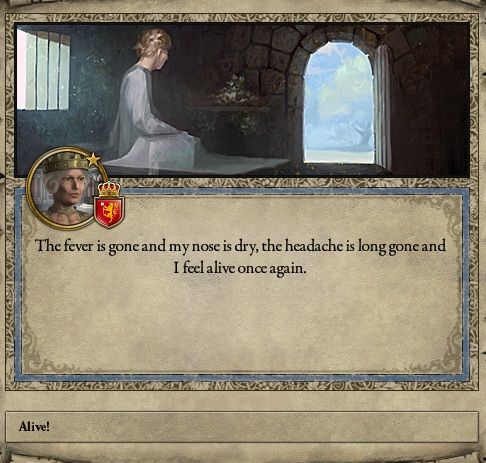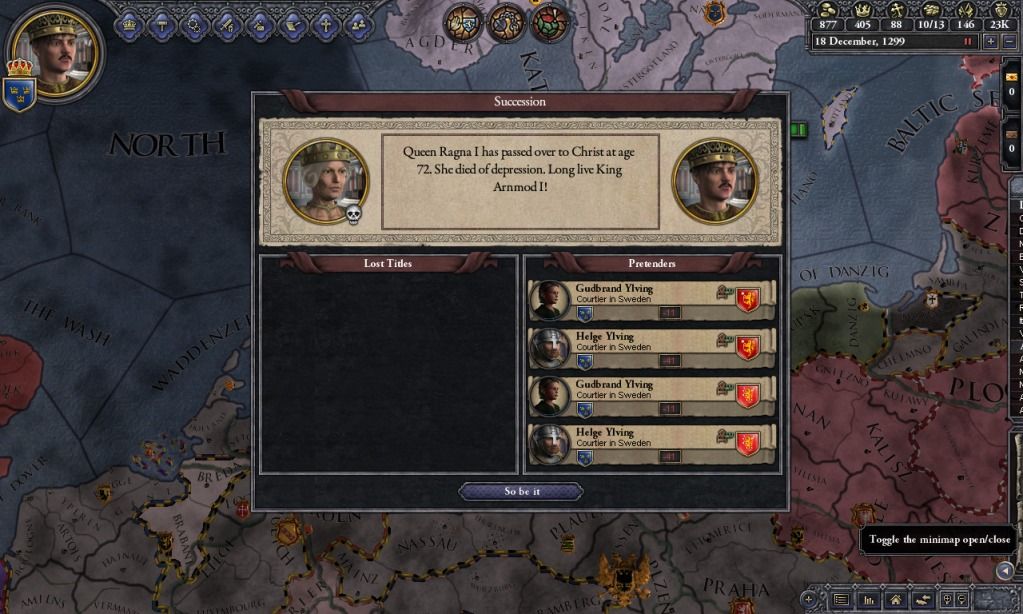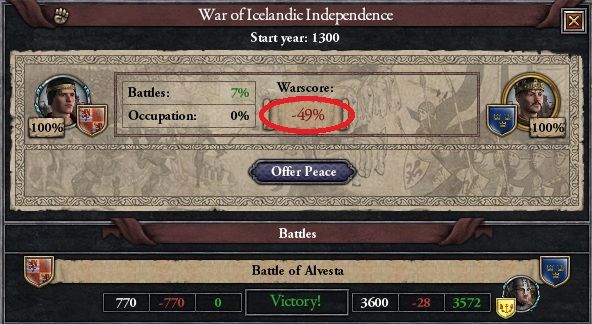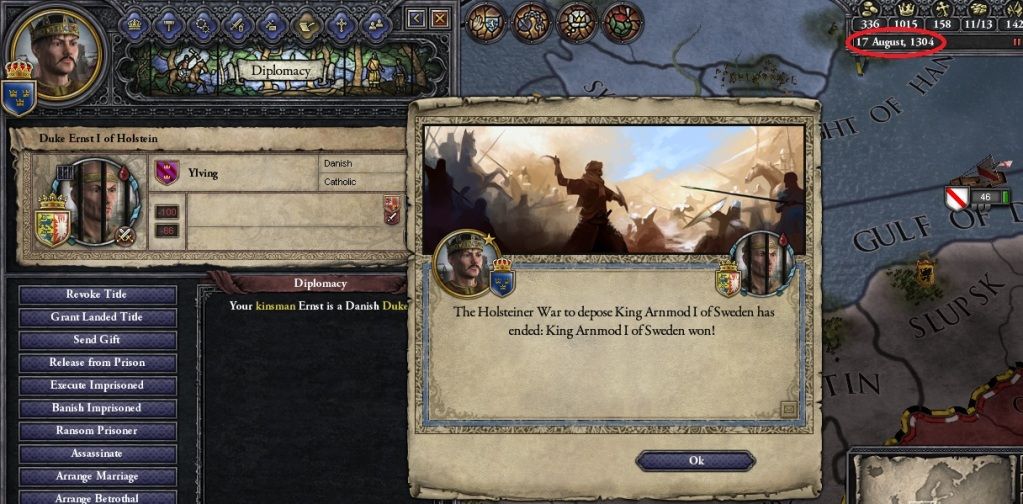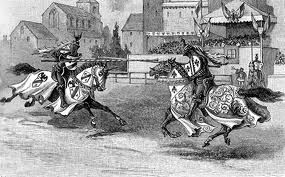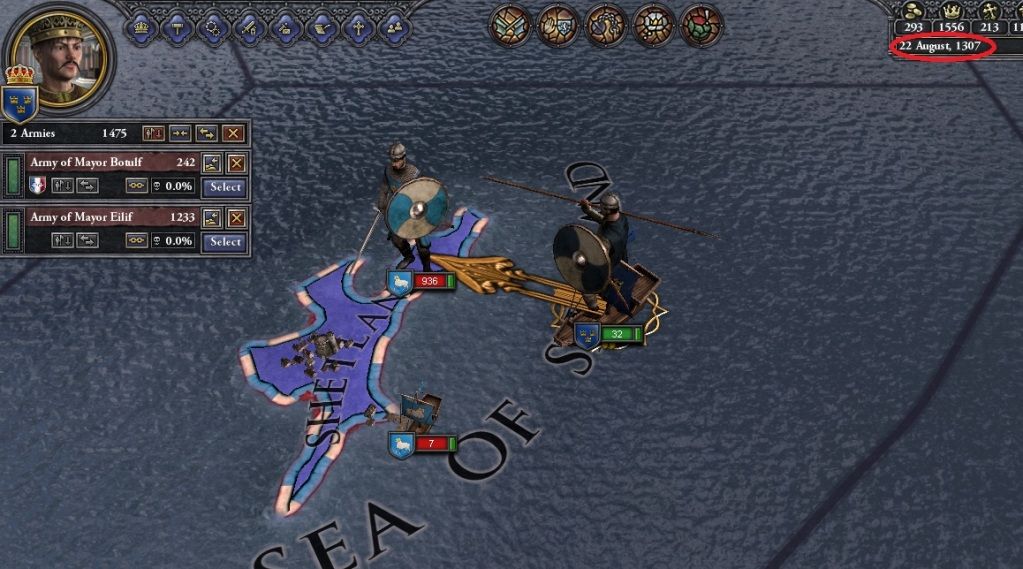Oland and Gotland became an integrated part of the Danish Kingdom and there was lot of exchange between the regions, since it was easier to travel by sea than by land. Carles' attempt to gain a foothold in the islands of the Baltic Sea proved to be successful. With his kingdom enlarged, he felt it was time to change it also from inside. Galvenkind succession laws, for the first time in the kingdoms existance, were introduced, with an intention and perspective to enlarge the King's demense. The promise given to Keiser Ulrich the Ironside, after all, was kept. And then, the war against the Duke of Skane ended earlier than expected.
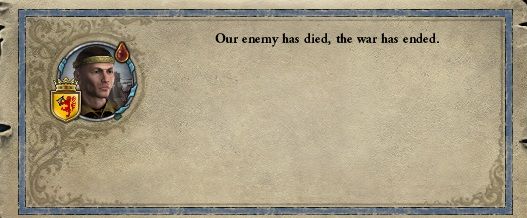
With the Norwegian succession laws in place, Carles' daughter Ragna now was the successor to the throne of the Kingdom of Norway. But not only to that throne. She was also the successor to the throne of the Kingdom of Denmark, provided Carles doesn't have any sons in the future. For Carles, who was quick and gluttonous, it meant to be doomed for the rest if his life. Carles was searching for consolation to somehow compensate his unwise, but unavoidable succession policies. First, a grand tourrnamnet was organized and was won by the Mayor of Ystad, Erik af Lund, who had an extremely negative opinion about the King. The tournament and recent acquisitions were celebrated in a five day fair. A court jester, who happened to be a winer of tournament, every day had to do storytelling and poetry reading. Carles enjoyed it immensely.

Suddenly, half a year later, a joke was played by fate. Carles received supposedly very good news. Fate so far had smiled upon him, he still didn't have a son....
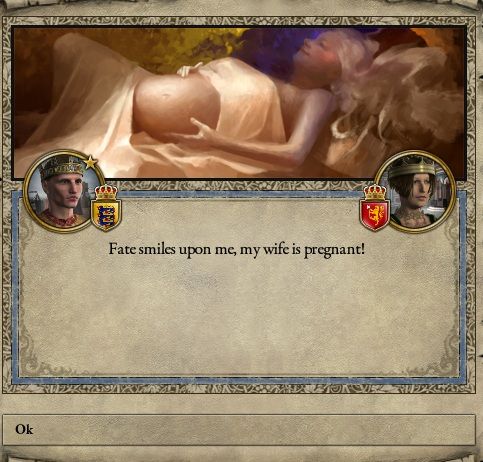

With the Norwegian succession laws in place, Carles' daughter Ragna now was the successor to the throne of the Kingdom of Norway. But not only to that throne. She was also the successor to the throne of the Kingdom of Denmark, provided Carles doesn't have any sons in the future. For Carles, who was quick and gluttonous, it meant to be doomed for the rest if his life. Carles was searching for consolation to somehow compensate his unwise, but unavoidable succession policies. First, a grand tourrnamnet was organized and was won by the Mayor of Ystad, Erik af Lund, who had an extremely negative opinion about the King. The tournament and recent acquisitions were celebrated in a five day fair. A court jester, who happened to be a winer of tournament, every day had to do storytelling and poetry reading. Carles enjoyed it immensely.

Suddenly, half a year later, a joke was played by fate. Carles received supposedly very good news. Fate so far had smiled upon him, he still didn't have a son....




